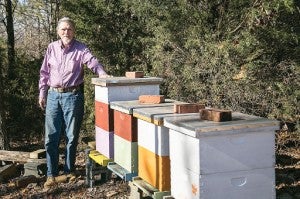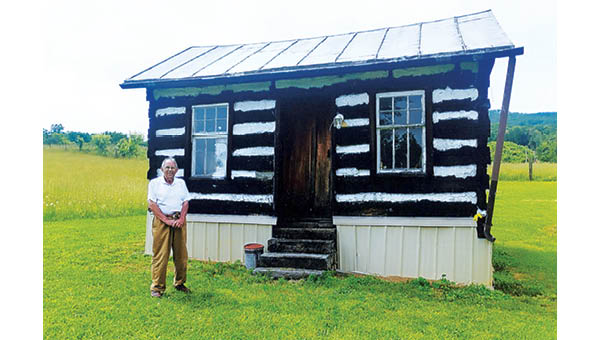Local beekeeper to host workshop at Sycamore Shoals
Published 9:36 am Thursday, February 5, 2015
Buzz, buzz, buzz.
The sound of honeybees hard at work is music to Joe Schultz’s ears. Schultz has been keeping bees at his home off Coal Chute Road for the past 12 years and is a self-professed bee fanatic.
“I am just fascinated with bees,” Schultz said. “They are just so interesting, and they are vital to our continued survival.”
Schultz will share his wisdom and experience with beekeeping during a special workshop at Sycamore Shoals State Historic Park 2-3 p.m. Sunday.
Schultz is a an experienced beekeeper and a member of the Washington County Beekeepers Association. He has successfully completed the Tennessee Master Beekeeper’s course.
At Sunday’s workshop, Schultz will explain the function of bees in our society. He will talk about “backyard beekeeping,” which the state of Tennessee endorses, and he will share information about local resources for supplies and equipment. “There are so many people who have questions about beekeeping, and about honeybees,” Schultz said.
Many people confuse bees with wasps and hornets, which gives the bee a bad rap, Schultz said.
“The bee is the only insect that harms nothing when it pollinates a plant,” he said. “The bee is not aggressive and will only harm you when it feels threatened.”
“They use the bird bath to get water,” Schultz said, pointing out his window. “I noticed one was in there struggling, so I stuck my finger in the water next to it. It climbed up on my finger, sat there until its wings dried off and then flew away. They are no threat to you unless you are a threat to them.”
Honeybees are especially important to the food cycle because they are responsible for pollinating one-third of the food products people eat, he said. Once a bee starts to pollinate, Schultz said, it is very focused on its task until it is finished.
“Once it starts gathering pollen, it will stay with that plant,” he said. “They do not jump around from plant to plant. On the next trip they might go to a different plant.”
A bee’s body was designed for pollination. Each bee is covered in millions of tiny hairs, some even on their eyes, so they can carry as much pollen as possible from plant to plant.
Tennessee has more potential for backyard beekeeping than has been realized, Schultz said, adding that the state agriculture department offers training in backyard beekeeping.
If a novice beekeeper sticks with it long enough, he may eventually qualify for state funding to buy and upgrade equipment, he said.
Schultz started keeping bees after he moved to Carter County and noticed the fruit trees he planted at his home were not thriving. He then noticed the lack of honeybees in the area and set out to start his own hives.
“The bees didn’t come to me,” he said. “I brought them here.”
Schultz has 10 hives on his property, and six of them are active.
He harvests the honey from the hives once a year and monitors his hives to make sure the bees have enough food in the winter and to keep an eye on the health of the bees.
He said one goal he has for his workshop is to share how important bees are to the local community as well as to the state and the whole country.
He said bees are currently threatened because of dangers that are being presented to their communities.
Schultz said varroa mites will attach themselves to bees and will suck their blood out. But a bigger concern for the bees is colony collapse disorder
Schultz explained that in a hive collapse, the hive is abandoned by the bees.
“They are trying to figure out what it is,” he said. “It is a mystery. The beekeepers come out and they find the bees have gone. The hive is just empty.”
Schultz hopes through the workshop that more people will develop an interest in beekeeping and want to start their own hives.
“If we lose the bees, we will be in big trouble,” he said.
The workshop is free and there is no need to preregister. The session is being held at Sycamore Shoals State Historic Park from 2-3 p.m. Sunday.






